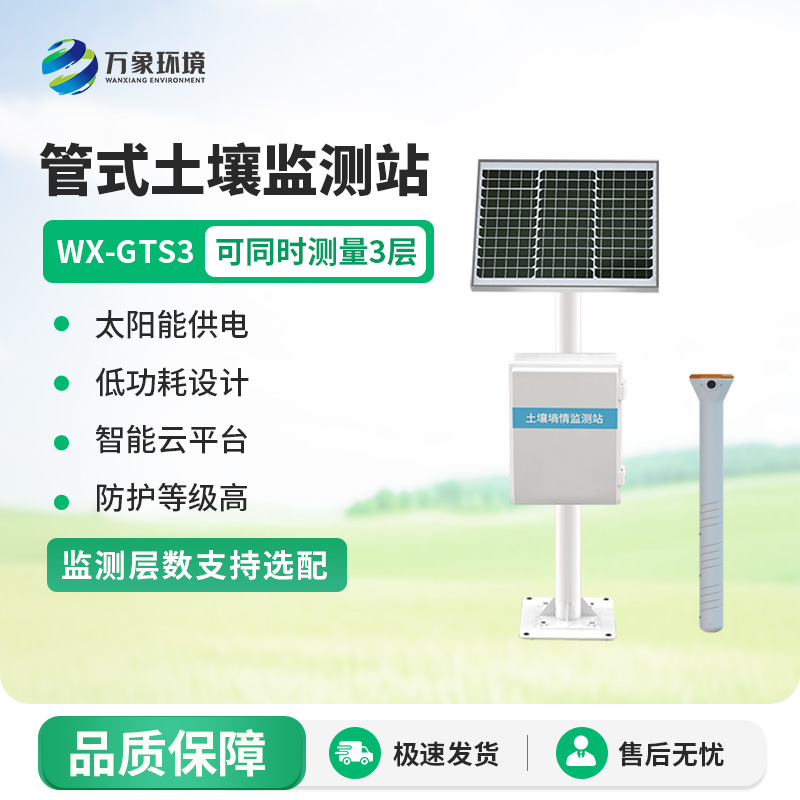Imagine what a revolution it would be if you could understand the moisture in the soil in real time and irrigate it on demand. Soil moisture monitoring system is such a "field detective", it penetrates into the soil through high-precision sensors, continuously monitors the water content for 24 hours, and combines big data analysis to accurately predict the water needs of crops. This not only avoids the waste of water resources caused by over-irrigation, but also ensures that crops get sufficient water nourishment during the critical growth period, achieving a win-win situation of saving water and increasing efficiency.
In traditional agriculture, when and how much water to water are often judged by farmers based on experience and lack of scientific evidence. The WX-GTS3 soil moisture monitoring system can provide detailed data support to help farmers plan irrigation plans scientifically and arrange farming activities reasonably. In addition, the system can also monitor key indicators such as soil temperature and electrical conductivity, provide accurate guidance for fertilization, pest control, etc., achieve optimal allocation of agricultural resources, and improve crop yield and quality.
Natural disaster is a big "obstacle" in agricultural production. Extreme weather conditions such as drought and waterlogging pose a serious threat to crop growth. Through real-time monitoring, soil moisture monitoring system can detect soil moisture anomalies in advance, issue early warnings in time, gain valuable coping time for farmers, and take effective measures to reduce the impact of disasters. This intelligent early warning mechanism is like putting on a layer of "protective clothing" for farmland, which greatly enhances the disaster resistance of agricultural production.
In today's increasingly strained resources and increasing environmental pressure, sustainable agricultural development has become a global consensus. The application of soil moisture monitoring system not only improves the utilization efficiency of water resources, reduces the excessive use of fertilizers and pesticides, but also promotes the restoration of soil ecological balance, and provides strong support for the green development of agriculture. In the long run, this will help build a healthier and more sustainable agro-ecosystem and ensure national food security and ecological security.

Article address:
http://www.qxhjjc.com/en/newcen/1275.html


















 Home
Home phone
phone Product Overview
Product Overview Contact Us
Contact Us